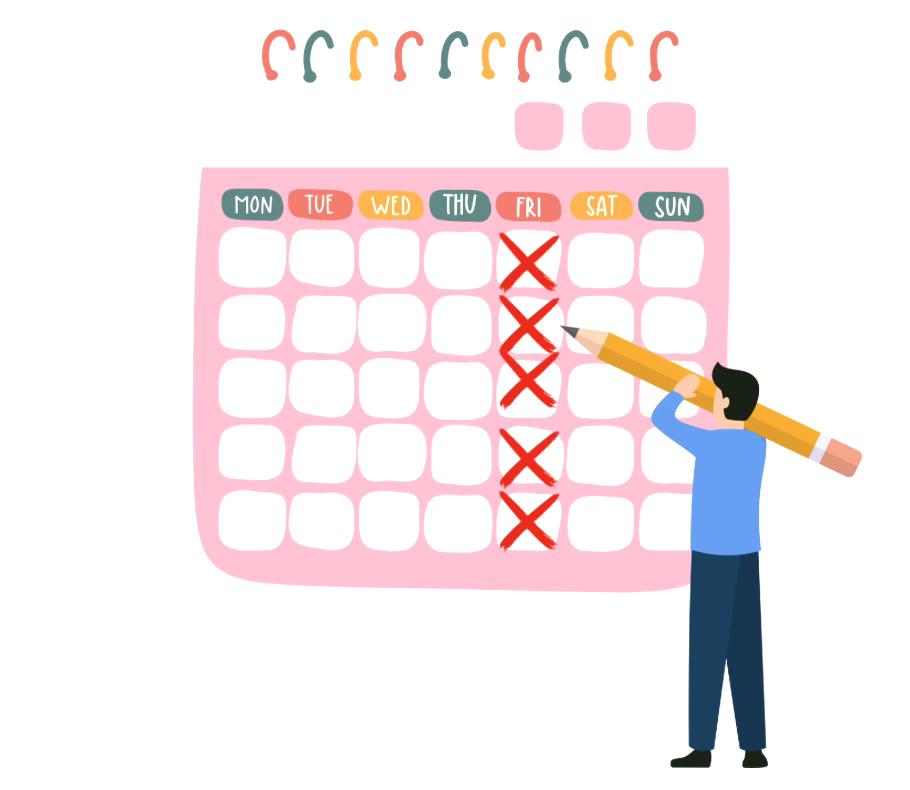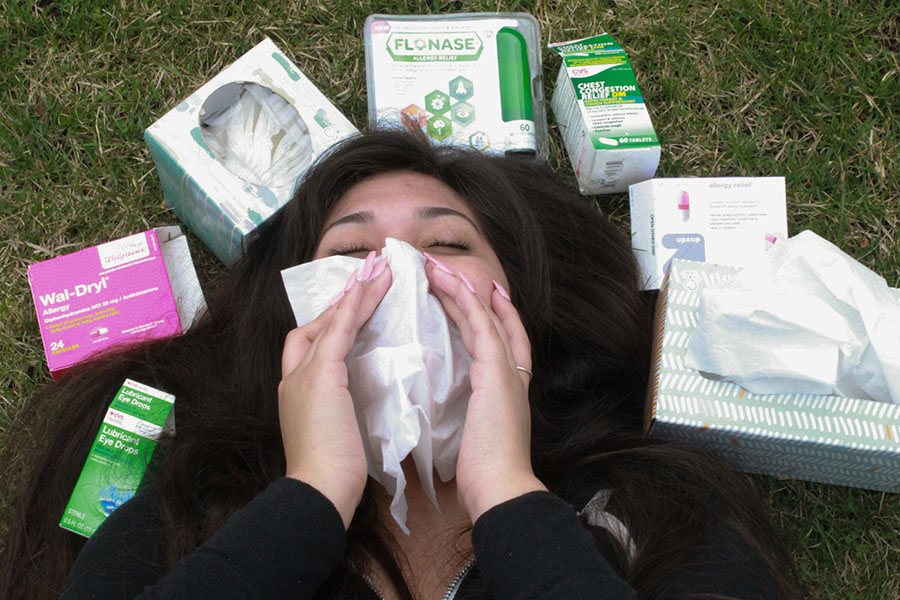Spring allergies can bite the dust
What comes with flowers and warm weather is spring allergies; allergies can pull you down, but there are numerous remedies for these annoying symptoms.
Junior Jennifer Meraz Barrera struggles with allergies, but manages her symptoms through home remedies.
May 4, 2017
Spring time has come, and for some that means enjoying the outdoors, while for others it means sneezing, coughing, and wheezing. Seasonal allergies plague more than three million people in the world.
Many take different medications to help with the symptoms. People most commonly take steroids which trigger hormonal effects (Flonase, Rhinocort, Nasacort, etc.), antihistamines which lessen an allergic reaction (Claritin, Zyrtec, Allegra, etc.), and decongestants which relieve sinus congestion (Sudafed, SudoGest, Wal-Phed, etc.) “At first I started taking Allegra and Claritin [for my allergies] and it made all of the symptoms worse; it worked for the rest of my family but not for me,” sophomore Jennifer Meraz Barrera said.
Seasonal allergies can go undetected for years, but many discover their allergies at a young age. There are different risk factors that play a part in having allergies. “My mom has allergies that are really bad, and usually if one of the parents has a severe allergy, most likely one of the kids will,” senior Erin O’Shaughnessy said. Other risk factors are being a child and having asthma or another allergy. “I’ve known about [my allergies] since third grade, but I have probably had them longer than that,” freshman Otto Leider said.
Each season brings on different pollens which can aggravate different symptoms. According to the University of Maryland Medical Center, autumn is when ragweed––the most common allergen––triggers seasonal allergies. Additionally, grass pollen triggers allergic reactions in the late spring and summer, tree pollen is prevalent during the springtime, and fungus mold is most common in summer and autumn. “My allergies are much worse in the springtime and in the fall; that’s when ragweed comes,” Leider said.
Even though there are over-the-counter and prescription medications that can help, there are other remedies to help with the sneezing, coughing, and itching; Chinese Herbal Medicines are great for helping people with their allergy symptoms and it’s better for your body because it’s all natural. Some herbs that have proven useful when treating seasonal allergies. Butterbur and Quercetin are proven to be as successful as over-the-counter antihistamines. Bromelain also helps with reducing nasal swelling, and it has been shown to help treat hay fever. A more unrecognized antidote to annoying allergies can be eating locally grown honey; bees transfer pollen from flowers to their hives; eating a little bit everyday can gradually allow your body to become less irritated towards pollen. This is a widely held theory, but there is no scientific evidence to back it up.






















































